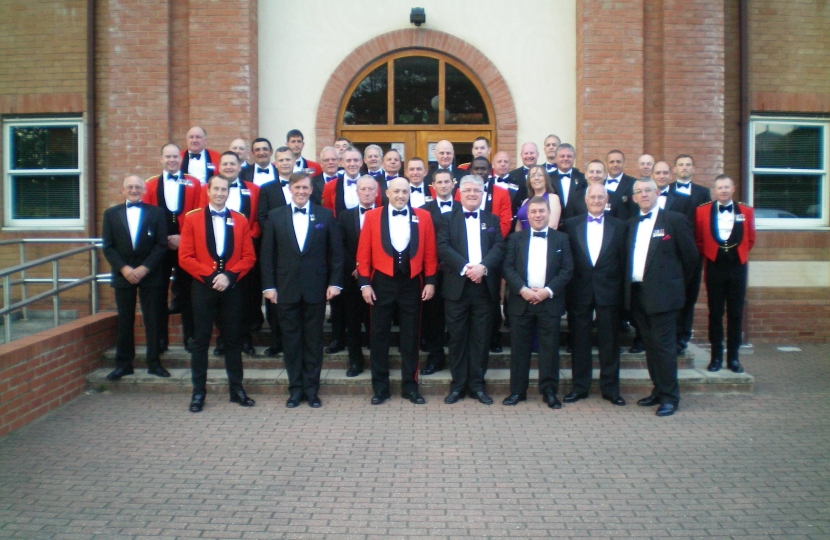
Rayleigh and Wickford MP, Mark Francois, who served as a Platoon Commander in a Royal Anglian Regiment TA Infantry Battalion during the Cold War, recently attended a special dinner held by the regiment at Chelmsford to mark the 200th Anniversary of the Battle of Salamanca, at which the Essex regiment famously captured a French regimental eagle from their opponents on the battlefield.
The dinner, which was held at the TA centre in Springfield, Chelmsford, was organised by E (Essex and Hertfordshire) Company of the 3rd Battalion of the Royal Anglian Regiment, which is the modern day TA Battalion. In accordance with tradition, one of the officers present gave an after dinner speech recounting the history of the Battle of Salamanca, which took place on the 22nd July 1812 as part of the Duke of Wellington’s famous Peninsula Campaign. During the battle, Wellington defeated a French army led by Marshall Marmont, one of Napoleon’s most senior military commanders.
During the clash of arms, Lieutenant William Pearce, an Officer with the 2nd Battalion of the 44th (East Essex) Regiment of Foot, famously captured a French Regimental Eagle from the 62nd Infantry Regiment, one of only several ever to be captured from the French in battle. The eagle now resides in the Essex Regiment museum at Old Moulsham in Chelmsford and remains to this day one of the proudest trophies in the history of the Royal Anglian Regiment.
Commenting on the dinner, Mark Francois said:
“As every school boy knows the Duke of Wellington won the Battle of Waterloo in 1815, but he also scored an important victory three years earlier at Salamanca, which helped the allies to eventually win in Spain and which led eventually to Napoleon’s final defeat at Waterloo. As someone who served in an Essex Company of the Royal Anglian Regiment, I was delighted to be asked to attend this special dinner to commemorate that great victory and also to remember those soldiers of the Royal Anglian Regiment who are serving in Afghanistan today, to help keep us safe.
In my experience, Essex people are great supporters of the Royal Anglian Regiment and I am sure they would agree that it is fitting to remember the regiment’s traditions. From time to time the French have been known to ask for their eagle back but, as I understand it they have always been told that if it was that important to them, they should have hung on to it in the first place, I entirely agree.”
